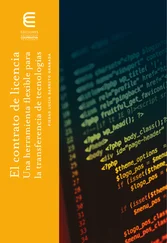Radwa Ashour - Granada
Здесь есть возможность читать онлайн «Radwa Ashour - Granada» весь текст электронной книги совершенно бесплатно (целиком полную версию без сокращений). В некоторых случаях можно слушать аудио, скачать через торрент в формате fb2 и присутствует краткое содержание. Год выпуска: 2003, ISBN: 2003, Издательство: Syracuse University Press, Жанр: Современная проза, Историческая проза, на английском языке. Описание произведения, (предисловие) а так же отзывы посетителей доступны на портале библиотеки ЛибКат.
- Название:Granada
- Автор:
- Издательство:Syracuse University Press
- Жанр:
- Год:2003
- ISBN:9780815607656
- Рейтинг книги:5 / 5. Голосов: 1
-
Избранное:Добавить в избранное
- Отзывы:
-
Ваша оценка:
- 100
- 1
- 2
- 3
- 4
- 5
Granada: краткое содержание, описание и аннотация
Предлагаем к чтению аннотацию, описание, краткое содержание или предисловие (зависит от того, что написал сам автор книги «Granada»). Если вы не нашли необходимую информацию о книге — напишите в комментариях, мы постараемся отыскать её.
Granada — читать онлайн бесплатно полную книгу (весь текст) целиком
Ниже представлен текст книги, разбитый по страницам. Система сохранения места последней прочитанной страницы, позволяет с удобством читать онлайн бесплатно книгу «Granada», без необходимости каждый раз заново искать на чём Вы остановились. Поставьте закладку, и сможете в любой момент перейти на страницу, на которой закончили чтение.
Интервал:
Закладка:
As soon as he settled into bed, Naeem fell into a deep sleep until a knocking at his door at the crack of dawn awoke him. He opened it, and there stood Saad who had come as they agreed the night before.
“My boss doesn’t get here until late morning, so there’s plenty of time. So, tell me what’s new before we start to work?”
Saad smiled as he stared at Naeem who just then realized that his friend had left him late last night, so how could there possibly be any news? Justifying his question he added, “I mean, did you run into anyone last night after you left? Did Umm Hasan make one of her annoying comments? Did you dream of something unusual last night or did you have a restful sleep? There’s always news to tell!”
Saad laughed and so did Naeem, and then they started to work. Umm Hasan couldn’t control herself from expressing her annoyance with her daughter-in-law. “Women arrange good marriages for their sons, and the daughters-in-law come and lift the burden from them. But this Maryama is a good-for-nothing dimwit!”
“She’s still a little girl, Zaynab,” pleaded Umm Jaafar. “Teach her and she’ll learn.”
“How can I teach her when she never comes and stands with me in the kitchen when I’m cooking? She never rushes to come over and pull the broom out of my hand when she sees me bent over sweeping out the house.”
Umm Jaafar laughed heartily as she pointed out how Saleema is no different, and that Maryama, although younger, at least responds when someone asks her to do something. But Saleema always makes a big fuss and concocts an excuse about something else she’s doing and complains that she can’t be doing two things at the same time. “They’re both still very young and not up to carrying all the responsibility. They’ll learn in time, especially when they have children.”
Unappeased, Umm Hasan continued her tirade against Maryama without ever mentioning Saleema, and Umm Jaafar only laughed and passed it off as a mother-in-law never satisfied with the woman who marries her son, even if she were as sweet as pie. “I guess all mothers-in-law are alike, except for me!”
Umm Hasan defended herself and added that she’s never seen a woman whose husband wakes up and goes to work while his wife is still sleeping, and who whiles away the entire day lounging about in bed and prattling foolishly like a child.
Umm Jaafar held her ground: “Your daughter is no different! It’s as though you’ve given birth to both of them at the same time. Why do you blame the one and not the other?”
Umm Hasan wasn’t comparing Maryama to Saleema, but rather to herself. She was convinced that her son wasn’t lucky enough to marry a girl clever and efficient around the house. Even though Umm Jaafar defended her by saying she’s young, and that the young do learn, that they follow the example of their elders, imitate them, and benefit from their knowledge, Umm Hasan insisted that this Maryama is clumsy and stupid and doesn’t want to learn a thing. She was exactly her age when she got married, but she was eager to gain the trust and admiration of her mother-in-law. She followed her around like her shadow, observed her, imitated her, and worked hard at sweeping and dusting, washing the clothes, and polishing the pots and utensils until they shone like mirrors. She stood next to her mother-in-law in the kitchen or sat next to her, never taking her eyes off of her as she observed closely how to prepare couscous, lamb stew with citrus fruit, chicken soup with dumplings, and meat and spinach pies. Even though she learned many different recipes from her own mother and aunts, she was nonetheless eager to learn new things, and it wasn’t long before Umm Jaafar grew to depend on her to prepare many dishes. She was exactly Maryama’s age when she mastered the arts of jerking meat, disemboweling a newly slaughtered sheep, salting fish, and pickling olives, lemons, and eggplants. She learned quickly how to make different kinds of pies, with cheese, date or fig jam and syrup, and all the things that a house full of family and guests never did without.
A few days ago she noticed that the powdered soap they used to wash their hands after eating was running out, and she called out to Maryama and asked her to make some more. She didn’t ask her to stuff a sheep, or to light a fire and knead dough and make bread. She simply asked her to make some hand soap, nothing more or less. Maryama responded, “Tell me how it’s done, and I’ll do it.”
Umm Hasan was stunned at how stupid the girl was, but she decided to be patient. “You mix the lotus fruit with some dried thyme, rose petals, and a bit of dried lemon peel. Then add some sandalwood dust and a handful of nutmeg. That’s all there’s to it.”
Maryama went into the kitchen but came out a dozen times to ask questions: where’s the dried thyme, or the little mill to grind whatever needed grinding? She even came out to ask about the amounts. When Umm Hasan finally went into the kitchen to see the soap her daughter-in-law was preparing, her faced contorted in anger and disgust. She was on the verge of dumping it all when Umm Jaafar came in and begged her not to hurt the girl’s feelings. What would happen if she asked her to prepare a meal of couscous? She probably would have come up with a big glob of sticky semolina and raw meat! She couldn’t for the life of her understand what Hasan saw in that girl. She wasn’t pretty, talented, or skilled at anything besides prattling with Saleema!
Saleema’s relationship with Maryama deepened by the day, compounded by the fact that Saleema was older than her sister-in-law by three years, thus giving her the role of the older sister. Maryama was sweet and pleasant, and she was perfectly happy in her role of younger sister. She felt great respect, if not pure awe, for Saleema’s ability to open a book, stare into it, and decode the meanings of its mysterious words. She even was kind enough to talk to her about what was in it. And when Saleema suggested to her that she teach her how to read, Maryama’s feelings turned to pure affection.
“Do you think I’ll be good at it?”
“Why wouldn’t you be good at it?”
Umm Hasan piped in: “My God, this is all we need!”
Now, added to their long talks and endless chatting were their daily lessons where Maryama would hold her slate and Saleema would sit in front of her and dictate letters and words, and then correct what Maryama had written.
Thus, while Umm Jaafar and Umm Hasan prepared the meals, cleaned the house, and did the laundry, the two girls sat in their places without moving a finger. Even when they weren’t chatting or having a lesson, the two always sat next to each other, Saleema reading a book and Maryama knitting swaddling clothes for the babies they both were expecting.
Naeem spoke with his employer. “My friend is an excellent shoemaker. He learned the craft in Malaga. Then he came to Granada and worked with a well-known cobbler, but when he found out his new patron was a sympathizer of the Castilians, he let it be known to Abu Mansour. Well, you know Abu Mansour’s position on this matter, and so he invited him to leave the scoundrel and come and work at the bathhouse.”
“That poor man, Abu Mansour! They closed down his bathhouse.”
“I must tell you, sir, that I’m afraid my friend might go to the cobbler in the next neighborhood, and they’ll give us some fierce competition.”
His boss stood silent for a moment, and Naeem saw no other recourse than to cut right to the matter.
“Say, why don’t you ask Saad to come and work with us?”
“I’m in no position to pay wages to two workers. Besides, there’s not enough work for that.”
That sly fox! Naeem thought to himself. Everyone in the neighborhood knew what a penny-pincher he was and how much gold he was able to hoard. Some even claim that he keeps his money stashed at home in three large vessels. Should he convince him there’s too much work and it can’t be done with one employee alone?
Читать дальшеИнтервал:
Закладка:
Похожие книги на «Granada»
Представляем Вашему вниманию похожие книги на «Granada» списком для выбора. Мы отобрали схожую по названию и смыслу литературу в надежде предоставить читателям больше вариантов отыскать новые, интересные, ещё непрочитанные произведения.
Обсуждение, отзывы о книге «Granada» и просто собственные мнения читателей. Оставьте ваши комментарии, напишите, что Вы думаете о произведении, его смысле или главных героях. Укажите что конкретно понравилось, а что нет, и почему Вы так считаете.












